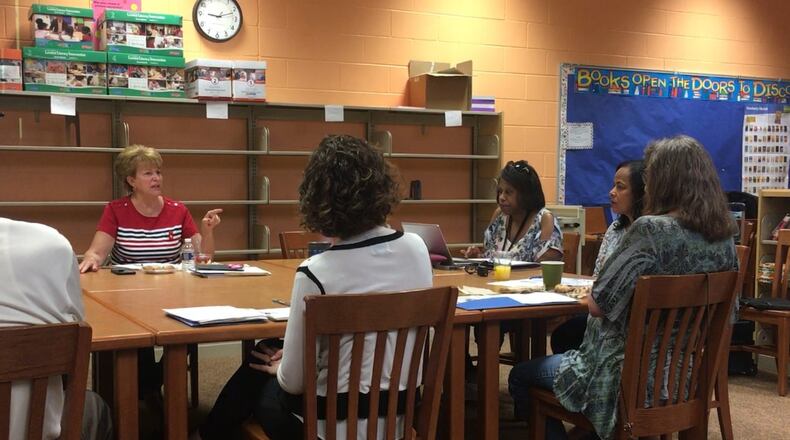LAST WEEK: Lolli will recommend RTA busing plan for high schools
The contract says the limited service’s operating hours and detailed bus schedule are to be included in an Exhibit A provided by RTA, but that document not been completed Saturday at the time the school board approved the contract.
Eligible students participating in the program will get a district-paid scannable RTA pass that includes a picture ID to verify that the correct person is using the pass. The buses would only run in the morning and afternoon, tied to school bell schedules. Non-student members of the public could also ride the limited-service buses if they paid for the ride.
By law, since DPS is offering the service to its own high schoolers, it has to offer it to charter school and private-school voucher students who live in the DPS geography. The district has estimated that about 2,800 total students would be eligible for the service, but it is unclear how many will choose to use it.
BIG PICTURE: Dayton schools to spend $60M on core problems
The DPS school year begins Aug. 12. Superintendent Elizabeth Lolli said by approving the contract at Saturday’s retreat, rather than waiting for the July 30 business meeting, she hopes the service will be ready in September, instead of the earlier estimate of October.
Lolli said DPS hopes to purchase regular RTA bus passes for high school students who want to ride the RTA before the new limited-service routes are up and running. District officials said that will be less efficient, as RTA’s existing routes were not designed specifically with high school times and locations in mind, and may require transfers downtown.
The contract says DPS will pay RTA up to $801,730 to install computer-aided dispatching, automatic vehicle location, radio and camera equipment to the limited-service buses. Lolli said RTA also needs two months to train additional drivers before the program can begin. DPS will also pay the annual cost of the busing program, which the contract estimates at $3.2 million for the first year.
RELATED: High school busing a key piece of strategic plan
School board members had several questions and suggestions before they voted Saturday:
** Mohamed Al-Hamdani said if the limited-service buses don’t run late enough, DPS should offer bus passes to students who stay after school for sports, band or other extracurriculars. Karen Wick-Gagnet suggested the district require a certain level of grades or attendance to qualify for those extra passes, so students would “have some skin in the game.” Lolli said she would double-check the legality of offering those after-hours passes for DPS students and not the charter and voucher students.
** Sheila Taylor, citing safety concerns, asked whether the RTA drivers would all be new hires, and also asked whether they would have any training dealing with large numbers of teenagers. Lolli said she would discuss the issue with RTA Executive Director Mark Donaghy.
RELATED: DPS to demolish two former schools
** With many students needing to transfer buses downtown for weeks until the limited-service routes begin, Robert Walker asked for the district to monitor the downtown hub, citing security concerns in past years. When Lolli asked whether DPS should place a few school resource officers at the hub, board members said yes.
** John McManus asked Lolli to consider safety on the buses themselves, since members of the public can ride the limited-service routes. He said it would only take one bad adult injuring or fondling a student on the bus, to turn a well-intended program into a problem.
McManus and Taylor were the two board members to vote against the contract.
About the Author

